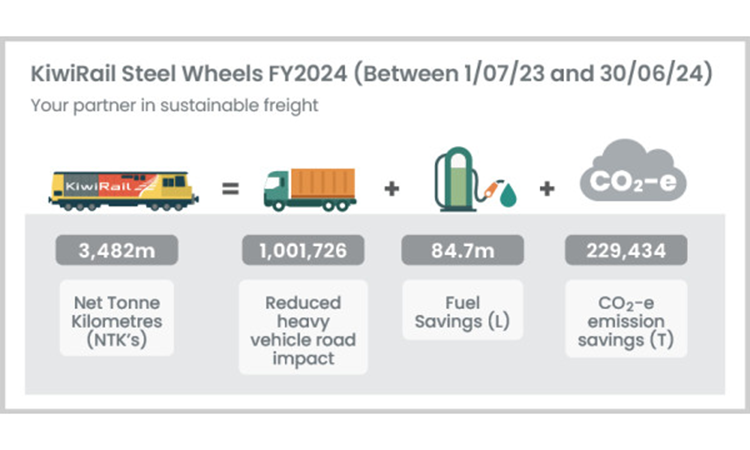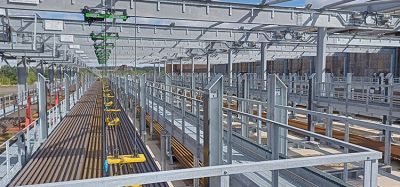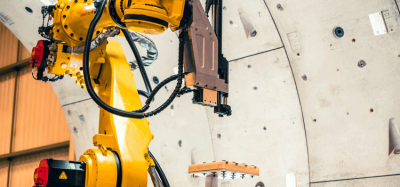KiwiRail report highlights significant environmental benefits from rail freight
Posted: 29 August 2024 | Global Railway Review | No comments yet
KiwiRail’s latest report shows that rail transport saved nearly 230,000 tonnes of CO2 emissions in the past year, underscoring its role in reducing New Zealand’s overall transport emissions.


Credit: KiwiRail
KiwiRail has announced that its rail services have helped businesses and freight companies save nearly 230,000 tonnes of CO2 emissions in the last financial year. According to the company’s latest data, goods transported by rail in the financial year ending 30 June 2024, reduced transport-related CO2 emissions by 229,434 tonnes, compared to the emissions that would have been generated if these goods had been moved by road.
In addition to cutting emissions, KiwiRail’s operations also avoided one million heavy truck trips, contributing to reduced road congestion, lower road maintenance costs and saving approximately 84.7 million litres of fuel.
Adele Wilson, KiwiRail’s Chief Customer and Growth Officer, said: “Rail is a key part of an integrated national freight transport system. It’s not about rail versus road but the two modes working seamlessly together. One freight train can carry the same amount of freight as 40 trucks – it’s an efficient way to move large quantities of goods over long distances. In a rail context, road plays an essential role in moving freight to and from the rail head. As the data shows, rail has a clear role in helping reduce our overall transport emissions and helping New Zealand meet its emission reduction targets. The message is that the more we choose rail, the greater the environmental benefits.”
KiwiRail has seen substantial government investment aimed at improving the national rail network. The company is currently replacing older locomotives with new low-emission diesel models, part of a broader effort to enhance service reliability and sustainability for its customers.
Despite the challenges posed by the current economic downturn, KiwiRail is actively seeking to expand its partnerships with logistics companies to grow rail freight volumes. Wilson highlighted several key projects from the past year, including collaborations with Mainfreight and the development of new rail hubs in Auckland and Canterbury, which are expected to significantly boost rail capacity and further reduce transport emissions.
These efforts, according to Wilson, underline the potential of rail transport to deliver environmental and economic benefits to New Zealand.







